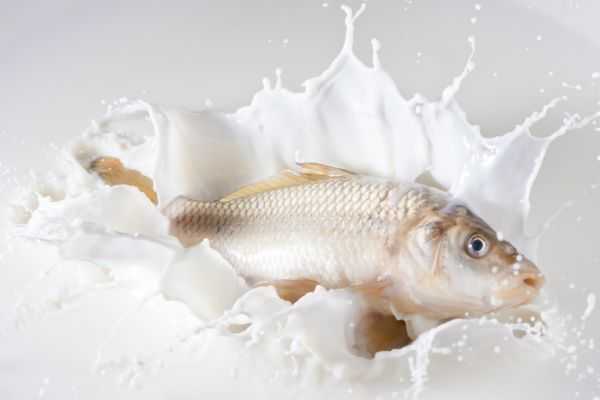Green Tea, for a last couple of years has become a hot topic of discussion in the health and fitness universe. Right from the different types of teas, be it Green, White, Black, Oolong, etc. to the amazing health benefits these teas offer, the tea lovers, swear by the effectiveness of their daily poison. But the hottest topic pertaining to teas, primarily green teas, is it’s relation to weight loss.

In fact, weight loss is such a hot topic that you can see ears getting erect and eyes sparkling, the moment someone mentions it. The effect of tea on weight loss is an old topic of debate, with many overhyping the seemingly little effect it has.
With an analysis of strong research, let’s unearth the unbiased truth on this topic.
A study assessed the mechanism of green tea’s effect on weight loss. They found the following mechanisms by which green tea exerts its effects:
- Green tea polyphenols elevate cholecystokin in hormone that decreases food intake and suppresses appetite.
- Green tea beverage has also been alter energy balance through their interference with the metabolism of lipid and carbohydrate by virtue of their antioxidant and physiochemical effect as well as their ability to activate metabolic enzymes.
- Green tea’s role as a starch blocker minimizes lactate concentration and reduces carbohydrate utilization.
- Green tea extracts inhibit fatty acid synthase, increase lipid metabolism through the intervention in the process of adipogenesis and lipolysis.
- Synergistic interaction between catechins and caffeine may result in increased CNS activity that prolongs sympathetic stimulation of thermogenesis, energy expenditure, and fat oxidation.
- Moderate concentration of green tea consumption for a long duration of time might be beneficial on EE and fat oxidation in obese subjects.
- The consumption of green tea catechins leads to improvements in body composition, reduced abdominal fat and improved metabolic disorders.
- Habitual green tea ingestion in combination with moderate-intense exercise was beneficial to increase the proportion of whole body fat utilization.
- Green tea catechins plus caffeine significantly reduced obesity as compared with either caffeine or caffeine-free catechins. Green tea catechins ingestion not only stimulates thermogenesis and fat oxidation, it also reduces body mass, visceral fat and total body fat.
- A 1999 study, investigated whether a green tea extract, by virtue of its high content of caffeine and catechin polyphenols, could increase 24-h energy expenditure (EE) and fat oxidation in humans.
On 3 separate occasions, 10 subjects were assigned among 3 treatments: green tea extract (50mg caffeine and 90mg epigallocatechin gallate), caffeine (50mg), and placebo, which they ingested at breakfast, lunch, and dinner.
Relative to placebo, treatment with the green tea extract resulted in a significant increase in 24-h EE. Twenty-four-hour urinary norepinephrine excretion was higher during treatment with the green tea extract than with the placebo. Thus, green tea has thermogenic properties and promotes fat oxidation beyond that explained by its caffeine content per se. The green tea extract may play a role in the control of body composition via sympathetic activation of thermogenesis, fat oxidation, or both.
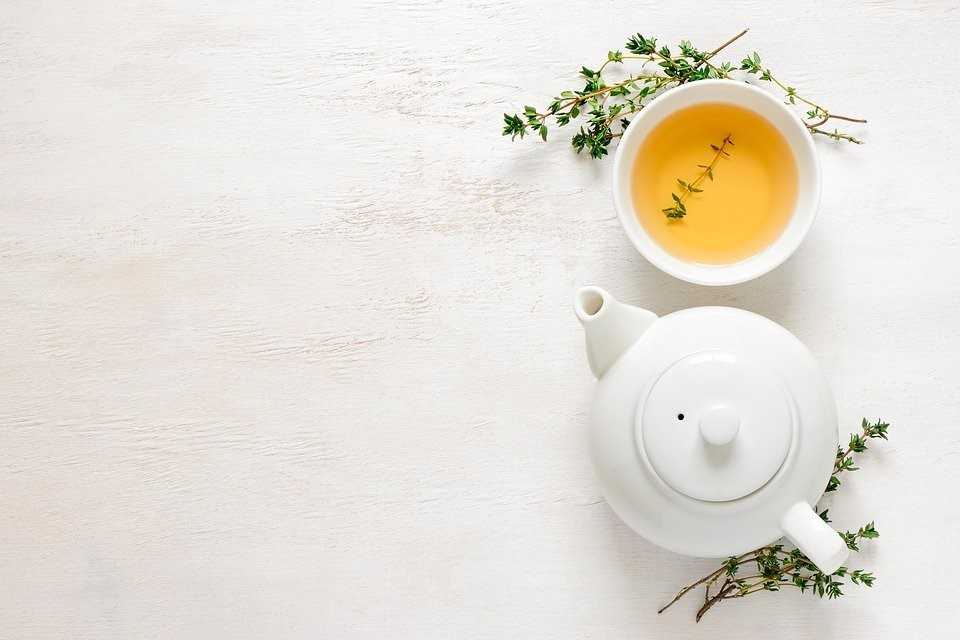
2. A 2003 study, found that green tea exerts potent body fat-suppressive effects in rats fed on a high-fat diet and the effect was resulted in part from reduction in digestibility and to a greater extent from increase in brown adipose tissue thermogenesis through beta-adrenoceptor activation.
3. A 2005 study, compared the effect of a mixture of green tea and Guarana extracts containing a fixed dose of caffeine and variable doses of EGCG on 24 h energy expenditure and fat oxidation, in 14 subjects.
During each stay, the subjects ingested a capsule of placebo or capsules containing 200mg caffeine and a variable dose of EGCG (90, 200, 300 or 400mg) three times daily, 30min before standardized meals.
Twenty-four hour energy expenditure increased significantly with all EGCG-caffeine mixtures compared with placebo. No effect of the EGCG-caffeine mixture was observed for lipid oxidation. Systolic and diastolic blood pressure increased by about 7 and 5 mmHg, respectively, with the EGCG-caffeine mixtures compared with placebo.
4. A 2005 study, investigated the effect of catechins on body fat reduction and the relation between oxidized LDL and body fat variables.
Healthy Japanese men were divided into 2 groups. A 12-wk double-blind study was performed in which the subjects ingested 1 bottle oolong tea/d containing 690mg catechins (green tea extract group) or 1 bottle oolong tea/d containing 22mg catechins (control group).
Body weight, BMI, waist circumference, body fat mass, and subcutaneous fat area were significantly lower in the green tea extract group than in the control group.
5. A 2005 study, investigated the effect of a green tea-caffeine mixture on weight maintenance after body weight loss in 76 obese subjects in relation to habitual caffeine intake. A very low energy diet during 4 weeks was followed by 3 months of weight maintenance (WM); during the WM period, the subjects received a green tea-caffeine mixture (270mg epigallocatechin gallate + 150mg caffeine/day) or placebo.
Researchers saw that, high caffeine consumers reduced weight, fat mass, and waist circumference more than low caffeine consumers; resting energy expenditure was reduced less and respiratory quotient was reduced more during weight loss.
In the low caffeine consumers, during WM, green tea still reduced body weight, waist, respiratory quotient and body fat, whereas resting energy expenditure was increased compared with placebo. In the high caffeine consumers, no effects of the green tea-caffeine mixture were observed during WM.
Thus, high caffeine intake was associated with weight loss through thermogenesis and fat oxidation and with suppressed leptin (appetite) in women. In habitual low caffeine consumers, the green tea-caffeine mixture improved WM, partly through thermogenesis and fat oxidation.
6. A 2005 study, investigated the effect of the long-term ingestion of tea catechins on postprandial energy expenditure and dietary fat oxidation, in 12 men. The subjects consumed 350ml of a test beverage/day that contained either a high dose of catechin (592.9mg) or a low dose of catechin (77.7mg) for a period of 12 weeks.
The results demonstrated enhancement in dietary fat oxidation and DIT as the result of the long-term ingestion of tea catechin. Dietary induced thermogenesis (DIT), defined as an increased energy expenditure from the fasting baseline for 8 hr after the single ingestion of a test meal.
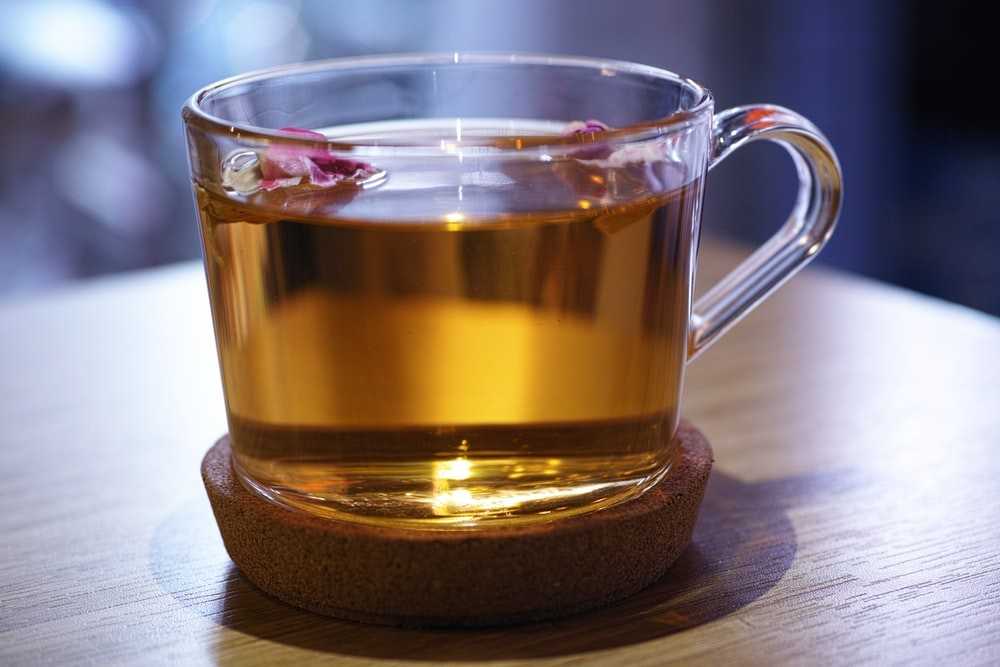
7. A 2005 study, analysed the effects of the combination of regular exercise and tea catechins intake on energy expenditure in humans. Fourteen male subjects received either a test beverage containing tea catechins or a control beverage without tea catechins for 2 months period; during this period they also engaged in treadmill exercise at a pace of 5 km/hr for 30 min 3 times a week.
Researchers found that, fat utilization for energy expenditure under both sedentary and exercising conditions was significantly increased by the combination of regular exercise and tea catechins intake compared to that by exercise alone. Thus, a combination of regular exercise and tea catechins intake can be expected to reduce body fat efficiently.

8. Another 2005 study, assessed the effect of ingestion of green tea (GT) extract along with a low-energy diet (LED) on resting energy expenditure (REE), substrate oxidation and body weight.
Forty-six overweight women were fed in energy balance from day 1 to day 3, followed by a LED with GT (1125mg tea catechins +225mg caffeine/d) or placebo (PLAC) from day 4 to day 87. Caffeine intake was standardised to 300mg/d.
Researchers found that, reductions in weight, BMI, waist:hip ratio, fat mass and fat-free mass were not statistically different between treatments. REE as a function of fat-free mass and fat mass was significantly reduced over 32d in the PLAC group but not in the GT group. The GT group became more hungry over time and less thirsty, and showed increased prospective food consumption compared with PLAC. Taken together, the ingestion of GT along with a LED had no additional benefit for any measures of body weight or body composition.
9. A 2006 study, analyzed the effects of green tea on body weight, and biochemical and hormonal profiles in obese Chinese women with polycystic ovary syndrome (PCOS). Thirty-four obese Chinese women with PCOS were divided into either treatment with green tea capsules or placebo for 3 months.
Researchers found that, the body weight of the green tea group decreased by a non-significant 2.4% after treatment; whereas the body weight, body mass index (BMI), and body fat content of the control group were significantly higher after 3 months. There were no differences in any of the hormone levels measured in either group. Thus, green tea supplementation did not significantly reduce body weight in obese women with PCOS, nor did it alter the glucose or lipid metabolism.
10. A 2008 study, examined the effect of green tea extract (GTE) on obese women and to explore the relationship between GTE and obesity-related hormone peptides. The subjects were divided into Groups A and B. Group A received GTE while Group B took a placebo, one capsule (400mg) three times each day for 12 weeks.
There was only a 0.3% reduction in BW (0.15 kg) after 12 weeks of treatment with GTE. There was no statistical difference in % reduction in BW, BMI and waist circumference between the GTE and placebo groups.
11. A 2008 study, investigated the effects of acute ingestion of green tea extract (GTE) on glucose tolerance and fat oxidation during moderate-intensity exercise in humans.
Two studies were performed. In study A, 12 healthy men performed a 30-min cycling exercise at 60% of maximal oxygen consumption (VO2max) before and after supplementation. In study B, 11 healthy men took an oral-glucose-tolerance test before and after supplementation. In the 24h period before the experimental trials, participants ingested 3 capsules containing either GTE or a placebo.
Researchers found that, the average fat oxidation rates were 17% higher after ingestion of GTE than after ingestion of placebo. Moreover, the contribution of fat oxidation to total energy expenditure was also significantly higher, by a similar percentage, after GTE supplementation. The insulin decreased in both the GTE and placebo trials, and there was a increase of 13% in insulin sensitivity.

12. A 2009 study, investigated the effect of a green tea-caffeine mixture added to a high-protein (HP) diet on weight maintenance (WM) after body weight loss in 80 obese subjects.
A very-low-energy diet intervention during 4 wk was followed by 3 months of WM; during the WM period, the subjects received a green tea-caffeine mixture (270mg epigallocatechin gallate + 150mg caffeine/d) or placebo, both in addition to an adequate protein (AP) diet (50-60g protein/d) or an HP diet (100-120g protein/d). Subjects lost 7.0 +/- 1.6kg of body weight.
Researchers found that, the green tea-caffeine mixture, as well as the HP diet, improved WM independently through thermogenesis, fat oxidation, sparing FFM, and, for the HP diet, satiety; a possible synergistic effect failed to appear.
13. A 2009 meta-analysis study, assessed whether green tea indeed has a function in body weight regulation.
An assessment of 11 studies found that, an EGCG– caffeine mixture has an effect on WL and on WM after a period of negative energy balance. So, the effect was seen primarily with caffeine, and that too with diet/calorie control. The overall effect too was quite small, app. 1.3kg. On the other hand, the small effect also varied with ethnicity, where Caucasians were found to have a smaller effect than Asians. But the overall effect was not significant.
14. A 2009 study, investigated the effects of continuous ingestion of a catechin-rich beverage in patients with type 2 diabetes. The participants ingested green tea containing either 582.8mg of catechins (catechin group) or 96.3mg of catechins (control group) per day for 12 weeks.
At week 12, the decrease in waist circumference was significantly greater in the catechin group than in the control group. Although the increase in Insulin at week 12 was significantly greater in the catechin group than in the control group, no apparent difference was noted between the two groups in glucose and hemoglobin A(1c).
15. A 2009 study, examined the separate and combined effects of different catechins and caffeine on energy expenditure (EE) and fat oxidation over a single day. Fifteen males received capsules containing placebo, caffeine alone (150mg), or caffeine plus a catechin mixture (600mg) enriched in either epigallocatechin-3-gallate (EGCG), epigallocatechin or a mix of catechins.
Researchers found that catechin/caffeine combinations at these dosages had non-significant acute effects on EE and fat oxidation. The maximum observed effect on EE of about 2% could still be meaningful for energy balance over much longer period of exposure. However, higher short-term effects reported in the literature may reflect variations in green tea extracts, added caffeine, or synergies with physical activity.
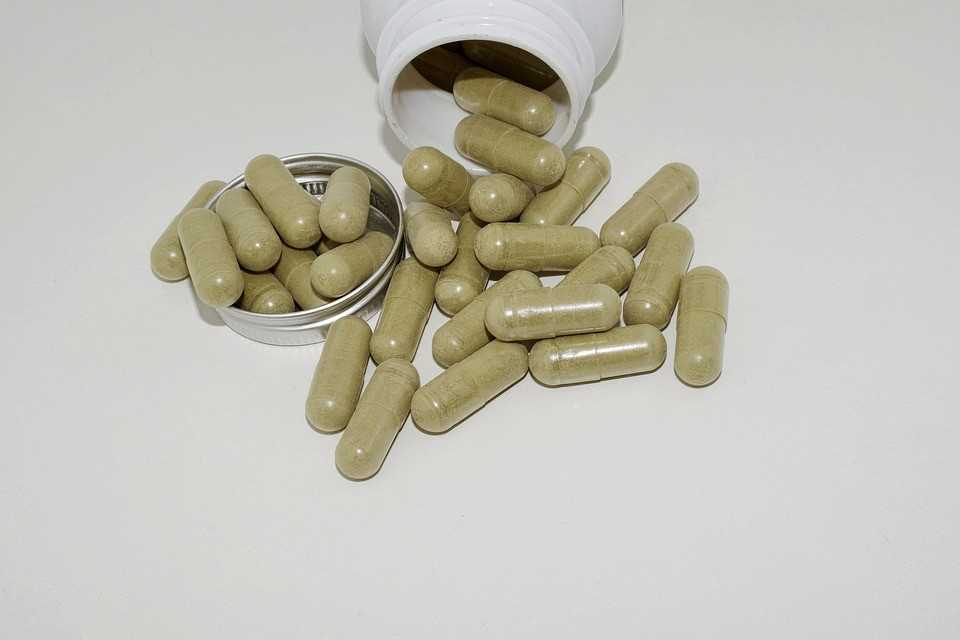
16.A 2009 study, investigated the effects of EGCG on fat oxidation and endurance performance in 8 male cyclists. All participants received 3 different treatments (placebo 270mg, EGCG 270mg, and placebo 270mg + caffeine 3mg/kg) over a 6-day period and 1 hr before exercise testing.
The study found little benefit in consuming green-tea extract on fat oxidation or cycling performance, unlike caffeine, which did benefit cycling performance. Therefore, it was concluded that green-tea extract offers no additional benefit to cyclists over and above those achieved by using caffeine.
17. A 2009 study, investigated long-term administration of green tea (GT), black tea (BT), or isolated EGCG (1mg/kg per day) on body composition, glucose tolerance, and gene expression related to energy metabolism and lipid homeostasis, in rats.
The results suggest that GT and BT suppressed adipocyte differentiation and fatty acid uptake into adipose tissue, while increasing fat synthesis and oxidation by the liver, without inducing hepatic fat accumulation. In contrast, EGCG increased markers of thermogenesis and differentiation in adipose tissue, while having no effect on liver or muscle tissues at this dose. These results show mechanisms by which tea and EGCG may improve glucose tolerance and support a role for these compounds in obesity prevention.
18. A 2009 study, evaluated the influence of a green tea catechin beverage on body composition and fat distribution in overweight and obese adults during exercise-induced weight loss. Participants were assigned to receive a beverage containing approximately 625mg of catechins with 39mg caffeine or a control beverage (39mg caffeine, no catechins) for 12wk. Participants were asked to maintain constant energy intake and engage in >or=180min/wk moderate intensity exercise.
Researchers found a trend toward greater loss of body weight in the catechin group compared with the control group. Percentage changes in fat mass did not differ between the catechin and control groups. However, percentage changes in total abdominal fat area, subcutaneous abdominal fat area, and fasting serum triglycerides (TG) were greater in the catechin group. These findings suggest that green tea catechin consumption enhances exercise-induced changes in abdominal fat and serum TG.
19.A 2010 study, tested the hypothesis that epigallocatechin-3-gallate (EGCG), the main green tea catechin, increases fat oxidation in 10 obese men. Study supplements were low EGCG (300mg), high EGCG (600mg), caffeine (200mg), EGCG/caffeine (300 mg/200mg) or placebo and were taken orally for 3 days.
Low EGCG increases postprandial fat oxidation in obese men and this to the same extent as 200mg caffeine, whereas high EGCG does not exert this effect. Fasting fat oxidation is increased only by caffeine (with or without EGCG). There is no synergism of low EGCG and 200mg caffeine. Energy expenditure is not affected by EGCG.

20. A 2010 study, studied the effects of a high-catechin green tea on body composition in a moderately overweight Chinese population. 182 moderately overweight Chinese subjects, consumed either two servings of a control drink (C; 30mg catechins, 10mg caffeine/day), one serving of the control drink and one serving of an extra high-catechin GT1 (458mg catechins, 104mg caffeine/day), two servings of a high-catechin GT2 (468mg catechins, 126mg caffeine/day) or two servings of the extra high-catechin GT3 (886mg catechins, 198mg caffeine/day) for 90 days. Data were collected at 0, 30, 60, and 90 days.
Researchers observed a decrease in estimated intra-abdominal fat area in the GT3 group. In addition, they found decreases of 1.9cm in waist circumference and 1.2kg body weight in the GT3 group vs. C. They also observed reductions in total body fat (GT2, 0.7kg) and body fat % (GT1, 0.6%). Researchers concluded that consumption of two servings of an extra high-catechin GT leads to improvements in body composition and reduces abdominal fatness in moderately overweight Chinese subjects.
21. A 2010 meta-analysis, studied the effects of Green tea catechins on body mass index (BMI), body weight, waist circumference (WC), and waist-to-hip ratio (WHR). Fifteen studies (1243 patients) met the inclusion criteria.
On meta-analysis, GTCs with caffeine decreased BMI, body weight (-1.38 kg), and Waist circumference (-1.93cm) but not WHR compared with caffeine alone. GTC ingestion with caffeine also significantly decreased body weight (-0.44kg) when compared with a caffeine-free control. Studies that evaluated GTCs without caffeine administration did not show benefits.
22. A 2011 study, reviewed a number of studies and found that the results have shown that consumption of Green Tea Catechins (GTC) (270 mg to 1200 mg/day) may reduce body weight and fat. There are several proposed mechanisms whereby GTC may influence body weight and composition. The predominating hypothesis is that GTC influences sympathetic nervous system (SNS) activity, increasing energy expenditure and promoting the oxidation of fat. Caffeine, naturally present in green tea, also influences SNS activity, and may act synergistically with GTC to increase energy expenditure and fat oxidation.
Other potential mechanisms include modifications in appetite, up-regulation of enzymes involved in hepatic fat oxidation, and decreased nutrient absorption. However, most of the effect was seen in relation to the caffeine present and there are too many variations which need further study when it comes to the influences of dose, method of intake (e.g., empty or full stomach, supplement, brewed beverage, etc.), duration of intake, sex, degree of adiposity and potential positive interaction with physical activity.
23. A 2011 meta-analysis study, assessed whether catechin-caffeine mixtures and caffeine-only supplementation indeed increase thermogenesis and fat oxidation.
Researchers found that, the catechin-caffeine mixtures and caffeine-only supplementation increased energy expenditure significantly over 24h. However, 24h fat oxidation was only increased by catechin-caffeine mixtures. Thus, compared with placebo, daily fat-oxidation was only significantly increased after catechin-caffeine mixtures ingestion.

24. A 2011 study, investigated the health effects of dietary supplementation with green tea catechins. Subjects (sedentary males, aged 40-69 years) were assigned to consume decaffeinated green tea extract (DGT; 530mg containing about 400mg total catechins/capsule, twice daily) and placebo.
Despite a similar increase in estimated energy intake during intervention period, body weight decreased by 0.64kg and increased by 0.53kg in the DGT and placebo groups, respectively, suggesting a protective effect of green tea catechins on weight gain.
25. A 2012 study, evaluated the effects of catechin-enriched green tea on Chinese adults with a high proportion of abdominal visceral fat. Subjects (118) were randomly assigned to consume daily a beverage containing 609.3mg catechins and 68.7mg caffeine or a control beverage for 12 weeks.
Average visceral fat area, body weight, and body fat were reduced significantly by catechin-enriched green tea treatment but these effects were not seen in the control group. The decrease at week 12 in the visceral fat area in the catechin group was greater than that in the control group
26. A 2014 study, examined the effects of green tea epigallocatechin-3-gallate (EGCG) on changes in body composition, energy and metabolism, cardiometabolic risk factors and liver function enzymes after an energy-restricted diet in obese women. In the present study, eighty-three obese pre-menopausal women consumed 300mg/d of EGCG or placebo. Researchers did not find any significant difference in the changes in body weight, fat mass, energy and fat metabolism, insulin resistance, total cholesterol, LDL-cholesterol, and liver function markers between the EGCG and control groups.
In conclusion, the present results suggest that dietary supplementation with 300mg/d of EGCG for 12 weeks did not enhance energy-restricted diet-induced adiposity reductions, and did not improve weight-loss-induced changes in cardiometabolic risk factors in obese Caucasian women. The intake of 300mg/d of EGCG for 12 weeks did not cause any adverse effect on liver function biomarkers.
27. A 2014 meta-analysis study, evaluated the magnitude of the effect of green tea or its extracts (caffeine and catechins) on body weight and body composition.
The effect seen in the analysis is similar to that seen in other studies, i.e. green tea or green tea extracts intake exerts no statistically significant effect on the weight of overweight or obese adults. There is a small effect on the decrease in the percentage of fat mass, but it is not clinically relevant.
28. A 2015 meta-analysis study, analysed whether green tea has an effect on body weight. Though the overall analysis showed a positive effect of green tea on weight, but the studies didn’t show a major difference in terms of weight. The average weight loss was just 1.2kg more than the non-green tea subjects. Also, caffeine had a major role to play in these effects.

29. A 2015 study, examined whether green tea supplementation for 12wk has beneficial effects on weight control via a reduction in dietary lipid absorption as well as an increase in resting energy expenditure (REE). 60 men & women, for 12wk, consumed either Green tea or placebo capsules.
No significant differences between groups and no significant changes over time were observed for the measured variables, like body composition, body fat, resting energy expenditure etc.
30. A 2016 study, examined the effect and safety of high-dose green tea extract (Epigallocatechin gallate, EGCG) at a daily dosage of 856.8 mg on weight reduction and changes of lipid profile and obesity-related hormone peptides in 115 women with obesity, for 12 weeks.
12 weeks of treatment with high-dose green tea extract resulted in significant weight loss, reduced waist circumference, and a consistent decrease in total cholesterol and LDL plasma levels without any side effects or adverse effects in women with central obesity. The anti-obesity mechanism of high-dose green tea extract might be associated in part with ghrelin secretion inhibition, leading to increased adiponectin levels. However, the word ‘significant’ actually referred to app. 1-1.2kg of weight loss after 12 weeks.
31. A 2017 study, evaluated the effects of chronic consumption of green tea on body weight and distribution of visceral fat in rats. Researchers found no significant difference in body weight. However, there was significant difference in visceral fat area.
32. A 2020 meta-analysis study, examined the influence of green tea supplements on obesity in humans.
Combined results indicated that body weight (app.1.78 kg) and body mass index (BMI) did change significantly following green tea administration. The reduction in waist circumference (WC) after green tea consumption was significant in subjects in trials employing Green tea ≥800mg/day and with a treatment duration <12 weeks.
Now, the major difference again after 12 weeks of intervention was seen to be just 1.78kg, and that too when combined with a balanced and healthy diet and regular physical exercise.
33. A 2021 study investigated the effect of decaffeinated green tea extract (dGTE), with or without antioxidant nutrients, on fat oxidation, body composition and cardio-metabolic health measures in overweight individuals engaged in regular exercise (twenty-seven participants; 20 females, 7 males).
The findings from the current study demonstrated that a moderate dose of dGTE consumed over 8 weeks did not result in a statistically significant change on fat oxidation rates.
CONCLUSION
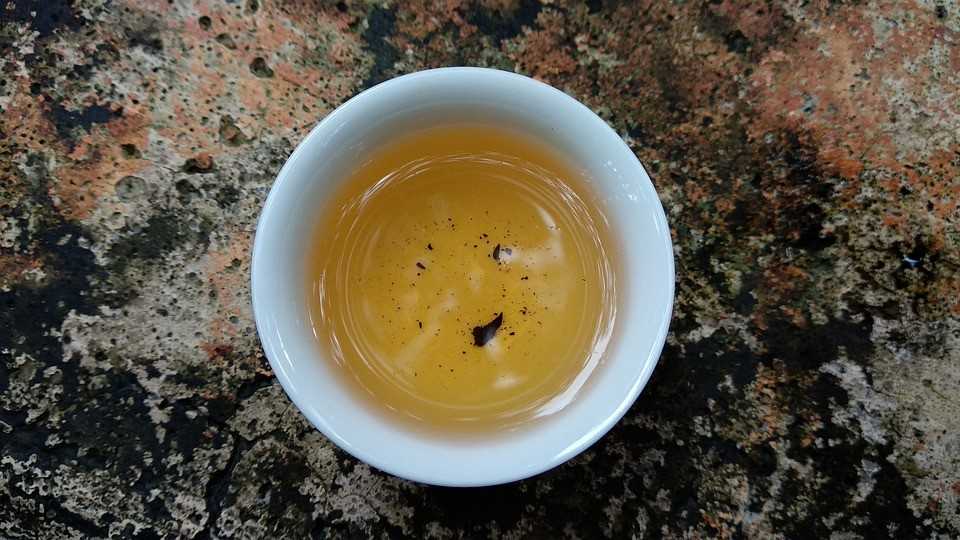
In a 2012 study in The Cochrane Database of Systematic Reviews, assessed the efficacy and safety of green tea preparations for weight loss and weight maintenance in overweight or obese adults. They found that:
- Those in the green tea group lost on average 0.2 to 3.5kg more than those in the control group over 12 weeks. In most studies, the weight loss was not statistically significant.
- This evidence does not apply to cups of green tea, typically prepared by steeping a tea bag in hot water. All trials used preparations of green tea that involved extraction procedures that yielded concentrations of active ingredients (catechins and caffeine) that were greater than that produced in a traditional cup of green tea.
- With a loss of 5% to 10% of body weight considered to be beneficial in reducing CV risk factors, the amount of weight loss produced by green tea preparations is unlikely to be clinically relevant.
With the later studies and other previous studies, the conclusion is similar:
- Green tea alone won’t do anything much. The average weight loss seen after almost 12 weeks of average studies is quite insignificant.
- On the other hand, most of the effect was seen with exercise, diet control and primarily caffeine.
Therefore, green tea or any other type of tea is no doubts an excellent beverage and has number of health benefits. But the effect on weight loss is very minimal. It’s no magic portion, as falsely claimed by many dieticians, coaches and websites. Stop convincing yourself that weight/fat loss will be greatly accelerated if you simply have the magical green tea. It won’t. The basics still remain the same, i.e. good old hard workouts and a clean diet.


